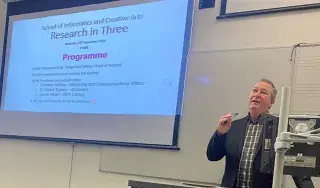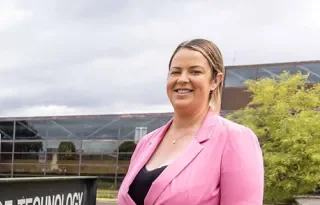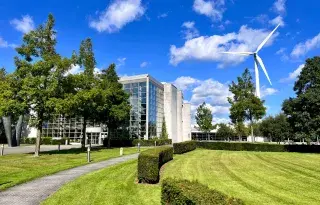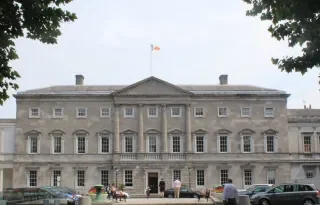DkIT Academics Provided Three Minutes to Explain their Research
The School of Informatics & Creative Arts in Dundalk Institute of Technology (DkIT) recently held an exceptionally informative and high energy event which highlighted and promoted the diverse range of research that is currently been undertaken in the School. The event was called ‘Research in Three’. The concept of this event was that each academic had to present their research in no more than three minutes with no more than three slides to a general audience. It was a great way for the researchers to hone their 'elevator pitch' explanation of their research, whilst the entire event gave a great overview of the research that is currently being performed across the School of Informatics & Creative Arts.

The event was opened by Prof. Fergal McCaffery, Head of School of Informatics and Creative Arts. Prof. McCaffery spoke about the importance of research for the Institute and how it is central to assist DkIT in its journey towards university status whilst increasing the Institutes profile nationally and internationally. DkIT already has a strong reputation for its applied research and has developed impressive access to companies and research in the community.
The DkIT academics work highlighted at the event emphasised the diversity and breadth of research topics currently being investigated in the Institute. These presentations included studies from:
- Dr Kayla Rush and Dr Abhishek Kaushik on ‘Interdisciplinary Collaborations in Artificial Intelligence and Music'
- Buddhika Gayashani Jayaneththi presented ‘Data Security Risk Management Framework for Artificial Intelligence Enabled Medical Device Software’
- Asifa Mehmood Qureshi spoke on ‘Data-driven framework for Artificial Intelligence enabled chronic diseases diagnosis and treatment’
- Darren Culliney who spoke on the topic ‘Finding the Ulster Accordion at FleadhFest’
- Niamh St John Lynch brought the audience through a three-minute presentation on ‘Artificial Intelligence enabled Medical Devices: A change management process for Regulatory Compliance’.
- Sargam Yadav expertly explained her research which has the title ‘Examining and countering misogynistic posts online in code-mixed languages using Machine learning and Deep learning Models with Explainable Artificial Intelligence’
- Abhishek Mandal spoke on ‘Gender Bias in Multimodal Visual-Linguistic Deep Neural Networks’,
- Dr Nikolaos Pantelidis who simplistically presented ‘An introduction to Riordan arrays’
- Karla Cepeda presented on ‘A development life cycle framework for AI-based Medical Device Software’
- Dr Muhammad Adil Raja who presented ‘Computer Vision and Object Detection for Computer-Aided Laparoscopy’
- Dr Daithí Kearney and Dr Adèle Commins brought the attendees through an exciting vision for ‘Scoring Brigid 1500: a composer's perspective’.
- Dr Róisín Loughran proficiently spoke on ‘Opportunities and Challenges from Artificial Creativity’ and was eloquently followed by Dr Sarah Tanner
- Leandro Pessina with a presentation on ‘Listening to Louth’s Heritage: engaging with fieldwork experiences’.



